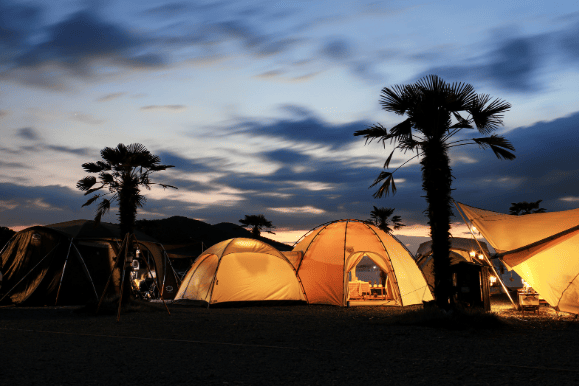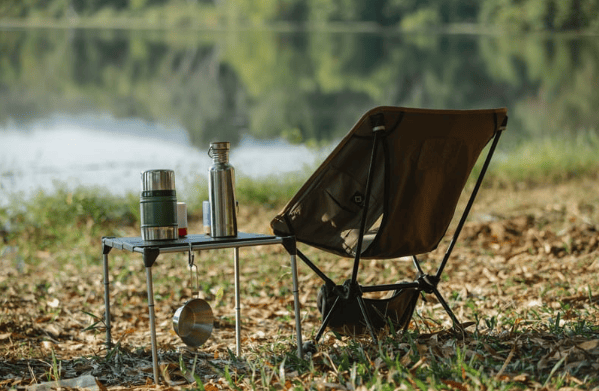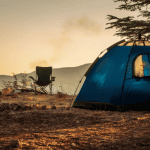
Imagine walking through a pristine forest, the air smelling of pine and freshly dampened earth, only to stumble upon a trail of candy wrappers and plastic bottles. Such sights can turn the beauty of nature into a heart-wrenching reminder of the environmental challenges we face today. One of the best ways to enjoy the great outdoors and ensure future generations can do the same is by adopting eco-friendly camping practices. “Leave No Trace” is not just a motto—it’s a responsibility. In this article, we’ll explore how you can embrace green camping habits and truly leave no trace behind.
Plan Ahead and Prepare
Before you even set foot on a trail, research the area you’re visiting. Understand the local wildlife, plant life, and the general lay of the land. This helps in two ways:
- You can minimize your impact by sticking to trails and campsites.
- You’re less likely to get lost or face unexpected challenges, reducing the chances of needing a rescue, which can strain local resources.
Stick to Designated Areas
Trampled vegetation can take years to recover. To prevent damaging delicate ecosystems:
- Always camp at least 200 feet away from lakes and streams.
- Use established trails and campsites. In more remote areas, camp at least 200 feet from trails and spread out to prevent creating new campsites.
Pack It In, Pack It Out
This is the golden rule of eco-friendly camping:
- Everything you bring, from food to packaging, should leave with you.
- Use resealable bags or containers to store your trash until you can dispose of it properly.

Minimize Campfire Impact
While a campfire might be synonymous with camping for many, it’s essential to know when and where they’re appropriate:
- Use a camp stove for cooking instead of making a fire. It’s more efficient and leaves less of an impact.
- If fires are permitted, use established fire rings or mounds. Keep fires small and only use sticks from the ground that can be broken by hand.
Respect Wildlife
Animals might look cute, but feeding them or getting too close can be harmful both to them and you:
- Store food and trash securely to prevent attracting wildlife.
- Observe animals from a distance. Never feed them, as this can lead to poor health or aggressive behavior.
Be Considerate of Other Visitors
Being eco-friendly isn’t just about the environment—it’s also about the community of nature enthusiasts:
- Yield the trail to those going uphill or to larger groups.
- Keep noise levels down, especially in the early morning and evening.
Use Biodegradable Products
From soaps to toothpaste:
- Opt for biodegradable products to minimize your chemical impact on the environment.
- Even with biodegradable products, try to use them at least 200 feet away from water sources.
Leave What You Find
This ensures others can enjoy the same beauty:
- Don’t pick plants, disturb wildlife, or remove rocks.
- Leave natural and historical artifacts in place for others to see.

Adapt to Nature, Don’t Alter It
Nature is best experienced in its authentic state:
- Avoid carving names into trees or moving rocks to create personal symbols.
- Allow nature to dictate your experience rather than trying to reshape it.
- Refrain from introducing non-native species, including plants and pets, to the environment. They can disrupt local ecosystems and harm native species.
Quiet Hours are Every Hour
The sounds of nature are therapeutic
- Speak in hushed tones, especially during dawn and dusk.
- Avoid noisy generators or music systems.
- Listen more than you speak; nature often communicates in whispers, from the rustling leaves to the distant call of wildlife. Embrace these natural symphonies for a richer camping experience.
Conclusion
Eco-friendly camping is more than just a trend—it’s a commitment to preserving the natural world. When we step into nature, we enter the home of countless species and ecosystems. By respecting their space and taking only memories, we ensure that the beauty of the outdoors remains untouched for generations to come. So the next time you venture into the wilderness, remember: “Leave No Trace” is not just a phrase, it’s a promise to the world we cherish. Happy camping!






